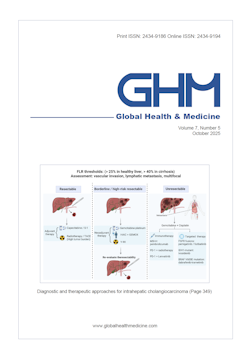Global Health & Medicine 2023;5(1):54-61.
Distress and impacts on daily life from appearance changes due to cancer treatment: A survey of 1,034 patients in Japan
Nozawa K, Toma S, Shimizu C
This study aimed to clarify the psychosocial difficulties and impacts that cancer patients face from appearance changes, in order to develop a patient support program. An online survey was administered to patients registered with an online survey company who met the eligibility criteria. The study population was randomly selected from gender and cancer types to create a sample that reflected the proportion of cancer incidence rates in Japan as much as possible. Out of a total of 1034 respondents, 601patients (58.1%) experienced appearance change. Symptoms that were reported to have a high distress level and prevalence rate, and that widely required provision of information were such as alopecia (22.2%), edema (19.8%) and eczema (17.8%). Distress levels and personal assistance requirements were high particularly for patients who experienced stoma placement and mastectomy. More than 40% of patients who experienced appearance change had quit or were absent from work or school, and reported that their social activities were negatively affected by the visually notable changes in their appearance. Concerns about "receiving pity from others" or about "the exposure of cancer" due to their appearance change also led patients to reduce outings (β = 0.32 and β = 0.31 respectively, p < 0.001) and social interactions with others (β = 0.34 and β = 0.36 respectively, p < 0.001) and increased the discord in human relationships (β = 0.21 and β = 0.19 respectively, p < 0.001). Results from this study indicate the areas in which more support is required from healthcare professionals, as well as the need for interventions for patient cognition to avoid maladaptive behaviors in cancer patients who experience appearance changes.
DOI: 10.35772/ghm.2022.01062







